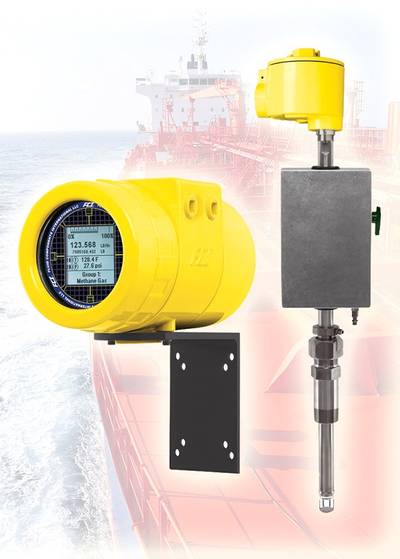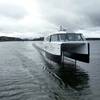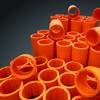Flow Meters Provide LNG “Boil Off” Solution
Level and flow instrumentation suppliers Allison Engineering have enjoyed success with a specialist flow meter application for their ST110 Gas Flow Meters being used on board LNG ships to measure boil-off gas, the natural wastage gas generated in the storage tanks. As the demand for Liquefied Natural Gas (LNG) has grown significantly in recent years so has the need for increased transportation capacity. Subsequent expansion of trade has resulted in a large expansion of tanker fleets where today LNG ships are typically carrying up to 266,000 m3 and sailing worldwide.
To facilitate transportation, the process involves natural gas being cooled down to minus 163ºC at atmospheric pressure, at which point the gas condenses to a liquid ready for transportation via tankers. The tanks on board an LNG carrier effectively function as giant thermoses in order to keep the liquid gas cold during storage. However, no insulation is perfect and the liquid is often boiling during the voyage and the solution is for reliquefaction and boil-off.
Typically LNG tankers are powered by steam turbines with boilers which are dual-fuel so they can run on either methane or oil, or a combination of both and conveniently the boil-off gas which is produced is diverted to the boilers and used as fuel for the vessel. However, where low emission zones exist, especially within European Union waters, it is mandatory for tanker operators to accurately measure how much boil-off gas they are using in their engines, as part of MARPOL Annex Vl, the current marine propulsion regulations.
Accurate and reliable measurement and specifically, in-line calibration and verification of boil-off gas, is crucial to tanker operators helping them to comply with current regulations.
The ST110 is unique in its ability to be functionally tested and calibrated without the need to remove the sensor from the pipeline. It features an internal purge tube that runs the length of the sensor and allows the operator to generate a known flow across the sensor element. The resultant signal output can then be compared to the factory baseline test certificate.
The ST110 flow meter is ATEX certified and complies with the ETS phase ll requirements for carbon trading. Materials of construction is 316 stainless steel for the housing and Hastelloy C for wetted parts, with control options via 4-20mA signal, HART, Profibus PA and Fieldbus H1 as required. It can operate at process temperatures up to +450ºC and offers a turndown ratio of 1,000:1.
allison.co.uk













